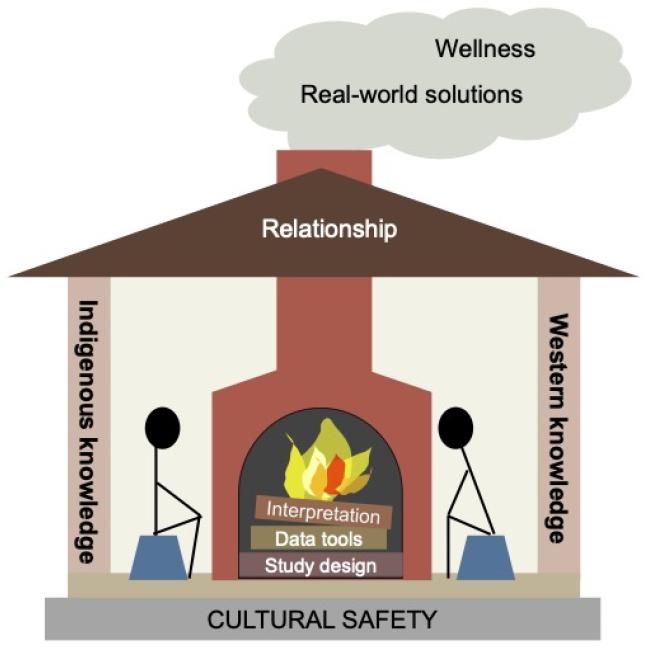Project Summary
The purpose of this project is to reorient the quantitative research process toward Indigenous knowledges and promote cultural safety for Indigenous Peoples in health research. To achieve this goal, the grantees are developing the Indigenous-Centered Quantitative Analysis Toolkit for Equity (ICQuATE), which they will employ to help dismantle barriers between Indigenous Peoples and the process of quantitative data generation, analysis, and interpretation. The ICQuATE project is guided by Etuaptmumk (Two-Eyed Seeing), which calls for synergistic integration of Indigenous and Western ways of knowing and has been applied in health studies to strengthen elements of reciprocity, relational accountability, and rigor.
Research Questions/Aims
- What are Indigenous-centered quantitative methods for health science, and how can researchers apply them to improve the experience and value of health research for Indigenous Peoples?
Actionability
- Co-identify a quantitative process that results in more culturally-relevant and contextualized data, more life-affirming research experiences, and greater benefit for Indigenous Peoples participating in research; and
- Enhance ownership of the quantitative process by Indigenous Peoples by curating a toolkit of highly usable quantitative approaches that address scientific needs across a range of Indigenous health research settings.
Outcomes
Health and Wellbeing: Greater cultural safety and reduction of health disparities through the use of improved quantitative methods in Indigenous health research.
Methodology
The project team will convene six to eight Indigenous knowledge keepers at a consensus workshop to create a working definition of Indigenous-centered quantitative health science. They will use the working definition and findings of an in-process scoping review to construct and curate the toolkit. They will then conduct a mixed methods pilot test with the 20-member health research unit of Wabanaki Public Health and Wellness, an Indigenous-led public health services organization serving four federally-recognize Tribes located in five communities in Maine. The team will use mixed methods to assess whether the toolkit improves team members’ experience and engagement during the implementation of community-based Indigenous health research projects.

Washington State University
Wabanaki Public Health and Wellness